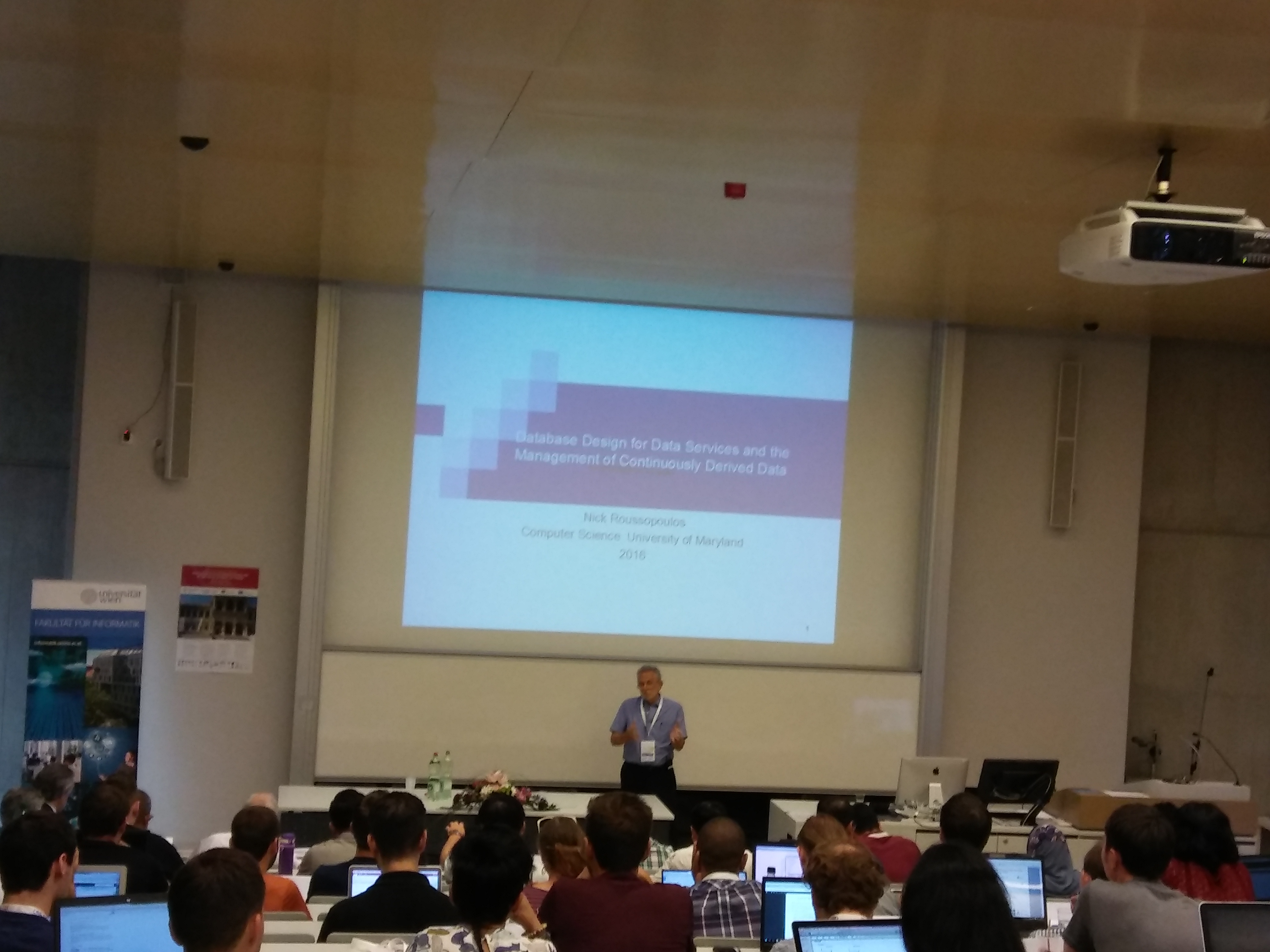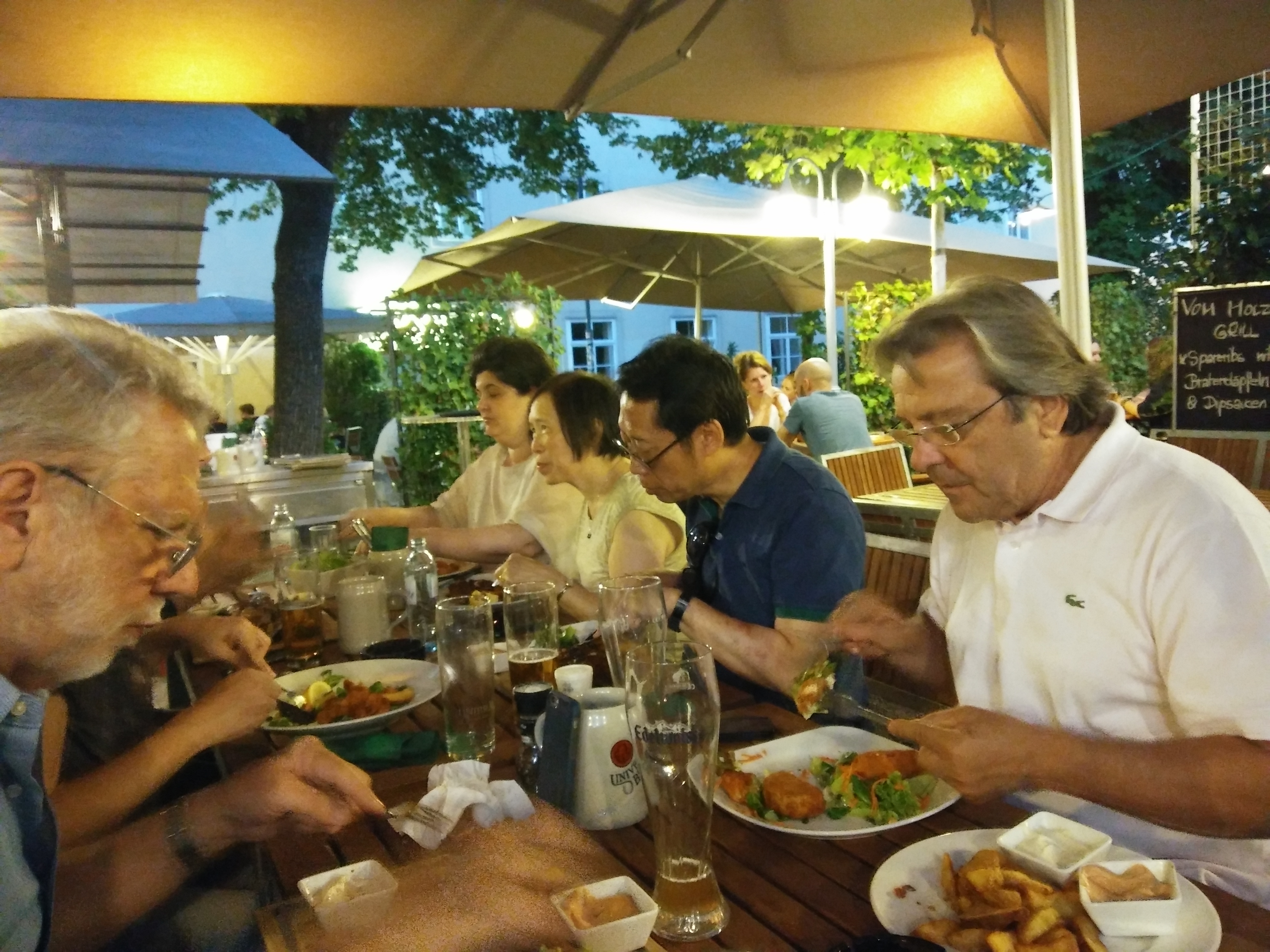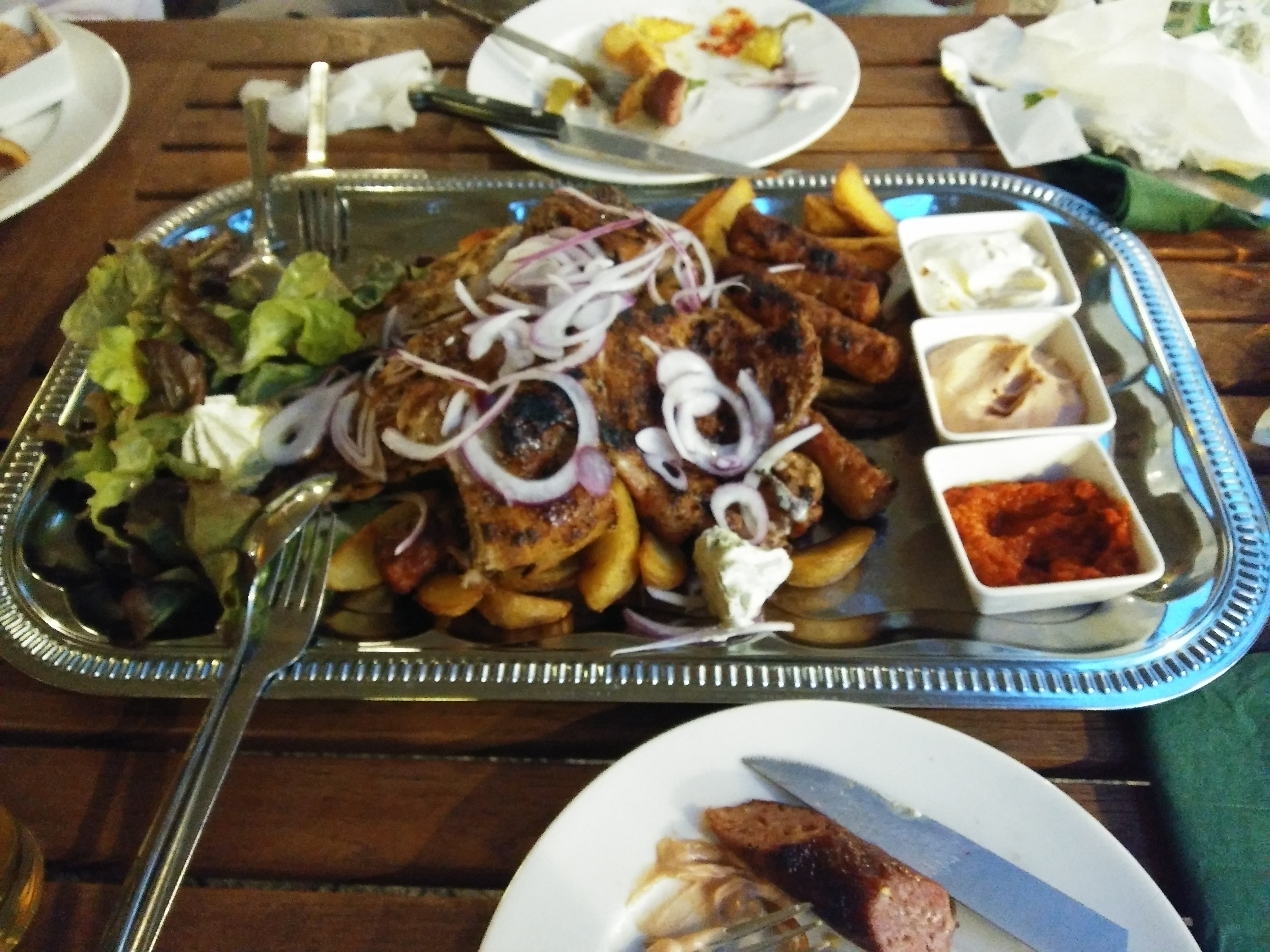Moon Kun Lee
Currently, Prof. in Division of Computer Science and Engineering in Chonbuk National University, Republic of Korea. Received Bachelor degree in Computer Science, Pennsylvania State University, USA; Master degree in Computer & Information Science, The University of Pennsylvania, USA, Analysis of Parallelism for MODEL Equational Language, advised by Prof. Noah Prywes; Ph.D. degree in Computer & Information Science, The University of Pennsylvania, USA. An Environment for Understanding Real-time Software, advised by Prof. Noah Prywes and Prof. Insup Lee. Worked at CCCC, USA, as a Computer Scientist; Developed SRE(SW Re/reverse-engineering Environment); Applied to modernization of legacy OS and SW from US Navy at NSWC. Main research interests are SW round-trip engineering, distributed real-time systems, formal methods - developed ATM, CARDMI and Onion, behaviour engineering - developed Behavior Ontology with n:2-Lattice, etc. Currently focused on collective behaviour engineering for distributed mobile systems with δ-Calculus, to be implemented in ADOxx®.
A Meta-Modelling Method for IoT Using Process Algebra and Behaviour Ontology
Prof. Dr. Moon Kun Lee, Chonbuk National University, Korea
Abstract
Things of IoT behave like living things behave in society. In order to understand the behaviour of the things systematically, it is necessary to abstract the behaviour in formal and collective patterns. In that perspective of abstracting behaviour of the things, this lecture presents a metamodelling method to abstract the behavior in the patterns as follows. Firstly, the basic individual actions of the behaviour are represented as movement actions in process algebra, called δ-Calculus, in a geo-temporal space, called GTS. Secondly, the actions of the things are grouped together in sequence as behaviours in ontology, called Behaviour Ontology, in an abstraction space, called n:2-lattice. In this way, the behavior of the things can be represented in mathematically structred patterns and be organzied hierachically in the collective patterns of population of the things. In the method, the requirements for the secure and safe behaviours will be specifed and verified using GTS Logic, and be represented as dynamic contraints in the lattice. Further the relations between the GTS space and the lattice space can be investigated. In order to show the applicability of the approach, an IoT example for Emergency Medical Systems will be used for demonstration on a tool, called SAVE. SAVE is a prototype tool to specify, analyze, verify and evaulate distributed mobile real-time systems. It has been developed on the ADOxx meta-modelling platform. At the end, the detailed architecture of the tool will be presented to show how effectively and efficiently the tool has been developed by using the basic facilities of ADOxx.


Jin-Young Choi
Prof. Dr. Jin-Young Choi is currently the Chair of the Software security interest group at the Korea Institute of Information Security And Cryptology. He completed his PhD at the University of Pennsylvania with the dissertation title: The Decidability Problem for Rigid E-Unification: A New Proof and Extensions. He received multiple awards and honors, such as the InfoCulture Education Award from the Prime Minister’s Commendation (2013), the Silver Prize from the Korean Institute of Information Scientists and Engineers (2013) and the SEOKTOP Teaching Award from the Korea University in 2013. His research interests are formal methods, software security, secure software engineering, software and supply chain assurance (SSCA) and Cyber Physical Systems.
Formal Methods for High Reliable Systems
Prof. Dr. Jin-Young Choi, Korea University, Korea
Abstract
In the age of Internet of Things, business models often require high reliable requirements and specifications. In this talk, we define three important properties of software which are „reliability“, „safety“ and „security“. We then introduce several formal methods in terms of formal specification and formal verification. We show briefly how we can use formal methods to build models with high reliable/safe/ secure properties.

Nick Roussopoulos
Nick Roussopoulos is a Professor of the Computer Science Department and a senior faculty member of the Institute of Advanced Computer Studies at the University of Maryland. He received his PhD from the University of Toronto in 1977 and taught at the University of Texas in Austin from 1977-1980, the University of Maryland from 1981 until now, and the Athens University of Economics and Business 2001-2002. He has also taught as a visiting professor at the University of Aachen, ETH of Zurich, Stanford, and the National Technical University of Athens. He was the founding director of the University of Maryland Database Systems Group in 1981. He served on an Academy of Sciences subcommittee, CODMAC from 1985 until 1988. He was the General Chairman of the ACM International Conference on Data Management (SIGMOD) in 1986. He was an elected trustee of the VLDB Endowment from 1990-1996. In 1994 he received the best paper award at the IEEE/CS international conference for a paper on updating of client-server database architectures. In 1997, he received the 10-year award for the most influential paper on Very Large Databases for spatial search and, in 1999, the ACM SIGMOD best paper award for the work on data warehousing. In 2001, he was elected Fellow of the Association for Computing Machinery. He is a member of the editorial board of the International Journals on Information Systems, Decision Support Systems, and Intelligent Cooperative Information Systems. Professor Roussopoulos research has ranged from modelling database semantics and design methodologies to database system development and datacube analytics. Lately he is focusing his efforts in data virtualization which permits virtual data integration and aggregation without data collocation. This is in the realm of Big Data and offers a metadata platform and the necessary plumbing for implementing a Virtual Metadata Network. Professor Roussopoulos has also founded a high tech software company (www.act-us.com) which specialises in data warehouse products and data dissemination software.
Database Design and Management of Derived Data in the Context of Big Data
Prof. Dr. Nick Roussopoulos, University of Maryland, USA
Abstract
A database design methodology like the one offered in the Open Model Initiative is a necessary tool for designing a database. In the old good days of databases, database design was a process that was followed by data entry, data loading, query and application development, testing and optimisation before making the database operational. Each of these steps were distinct and time consuming. In the past decade or so, the environment has changed drastically. The majority of the data is generated by machines, scanners, sensors, cameras and a lot of it is offered by multiple external data services on the internet. The result is what we call today Big Data and is characterized by the 5Vs: Volume (very high), Variety (multiple types), Velocity (speed of change), Variability (inconsistencies), and Veracity (quality). The last two Vs require data to be curated and stored before use. This adds redundancy and lineage metadata to the database. In the Big Data context, what is the role of a database design methodology? And what are the necessary tools to deal with the challenges in these 5V dimensions? In this talk, we will cover the basic database design methodology and its extensions to make it a continuous process to handle the 5 Vs. We will also cover continuous database schema evolution and vertical data integration in-the-small necessary to deal with Velocity and derived data.

Jelena Zdravkovic
Associate Professor Jelena Zdravkovic is the head of the Information Systems unit of the Department of Computer and Systems Sciences at Stockholm University. She has a PhD in Computer and Systems Sciences at Royal Institute of Technology (KTH) from 2006, as well as the MBA in E-commerce. Jelena has published more than 70 refereed papers in international conferences and scientific journals on the topics of enterprise modelling, business/IT alignment and requirements engineering. She has participated in several national and international projects on the interoperability, service modelling, and model- driven engineering. In her department Jelena is the head of the study program „Enterprise Systems and Service Design“, and the main responsible for the subjects Requirements Engineering and System Integration. She is a regular reviewer for a number of international journals including several of Springer, such as Requirements Engineering Journal, as well as Elsevier’s Journal of Systems and Software, and Information & Software Technology journal, also IEEE Computing journal. She serves in the program committees of more than 10 international conferences and workshops.
Building Sustainable Applications by Integrating Capability-oriented Enterprise Modelling with System Development
Prof. Dr. Jelena Zdravkovic, Stockholm University, Sweden
Abstract
A significant objective of today’s enterprise Information Systems (IS) is to be sustainable, which entails producing value to their stakeholders over time. A major concern is how Information Systems can successfully adapt and support constant variations in business conditions originating, for instance, from changes in customers’ demand, environmental aspects, regulations, and many others. The need for enterprises to operate in changing environments has been addressed by proposing a capabilityoriented approach that integrates organisational development with IS development taking into account changes in the application context of the solution. It requires a number of organisational concepts to be modelled, such as business goals, processes, resources, Key Performance Indicators (KPIs), as well as the parameters for describing business environmental contexts for organisations capabilities. In the lecture I intend to outline the capability-oriented approach for supporting model-driven organisations, as well as to present the current experiences of developing capability models in several industrial cases.
------------------------------------------------------------
Industrial Presentation
--------------------------------------------------------------



